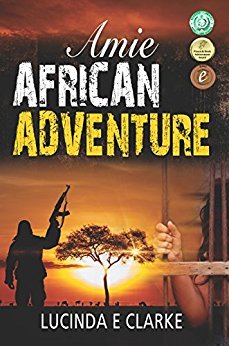 The subject of my latest ‘date’ is a writer relatively new to fiction who has behind her a long career as a professional writer and broadcaster. However, unless you have spent many years in Africa, you are unlikely to have come across her in that role. She has written extensively about her life in three volumes of memoirs which she followed with a series of thrillers set on the African continent and featuring her alter-ego Amie. The memoirs reveal an extraordinary resilience, as she encountered many disappointments as well as considerable successes.
The subject of my latest ‘date’ is a writer relatively new to fiction who has behind her a long career as a professional writer and broadcaster. However, unless you have spent many years in Africa, you are unlikely to have come across her in that role. She has written extensively about her life in three volumes of memoirs which she followed with a series of thrillers set on the African continent and featuring her alter-ego Amie. The memoirs reveal an extraordinary resilience, as she encountered many disappointments as well as considerable successes.
I began by asking her which of her achievements she was most proud of – and what event in her past life makes her cringe when she recalls it.
“My proudest moment was probably when an article I wrote was published in a national magazine in South Africa about a young couple living in a shanty town. They had so very little yet they were so brave and cheerful and even insisted I had a cup of tea as I interviewed them. Their story was heart breaking. When it came out it caused quite a storm and readers from all over the country sent in food parcels, candles, money, blankets and clothes. The magazine asked me to go back in and help deliver the goods with a couple of chosen readers, take more pictures and write up the visit. It was a wonderful afternoon, and I left feeling like Mother Theresa.
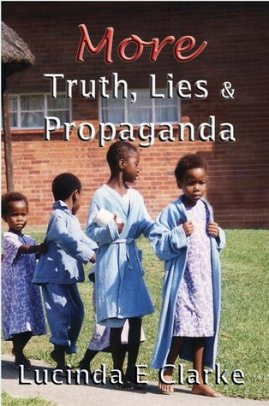 My worst moment was a follow up to this same story. I was back filming in the same shanty town six months later when I discovered that the moment our vehicles had left on that uplifting afternoon, several other residents in the camp had descended on them and taken everything. Joel had got into a fight, been knifed and killed. Thombe had fled and had not been seen since. The woman who’d introduced them to me had screamed at me, reminding me that I had got paid for all my ‘good deeds’ which ruined this young couple’s lives. Now I felt like Judas Iscariot.
My worst moment was a follow up to this same story. I was back filming in the same shanty town six months later when I discovered that the moment our vehicles had left on that uplifting afternoon, several other residents in the camp had descended on them and taken everything. Joel had got into a fight, been knifed and killed. Thombe had fled and had not been seen since. The woman who’d introduced them to me had screamed at me, reminding me that I had got paid for all my ‘good deeds’ which ruined this young couple’s lives. Now I felt like Judas Iscariot.
It taught me one lesson, never interfere in a situation unless you fully understand the consequences.”
I can’t think of anyone I know of whom the slogan “Been there, Done that, Wore the t-shirt” is more apt, so I wonder what advice she would give to someone facing the disappointment of failure.
“I’m tempted to be flippant here and say “try, try, try again and give up.” In many ways I’ve been lucky as I spent most of my time trying to hold it together and never had the luxury of sitting and moaning when things went wrong. I had to just keep going, to put food on the table for two hungry youngsters, hide the facts of life from them and be willing to turn my hand to anything. Wanting to be a great novelist (yes, I know I laugh about this too) from the age of 5, it wasn’t the most riveting thing in the world writing about the manufacture of mouth guards, or how they sewed hands back on after being severed in a cement mixer, (you have no idea how squeamish I am). But this was writing of a sort and a long and valuable apprenticeship.
I had glamorous ideas of being a doctor, but when you faint at the sight of blood or a needle that’s not such a great idea. Not everyone can write, and even great writers never make the top charts, but if you’ve suffered one disappointment after another, get your work appraised by someone ruthless (not another indie author, friend or family member) who will tell you the honest truth. If the response is positive then you just keep trying, if not, then find another way to express your creativity.”
And, for those preening themselves in the glow of success, was there anything she would say to bring them down to earth without “raining on their parade”?
“Remember how fickle the public is. Today you are the flavour of the month, tomorrow no one remembers who you are. One comment, one piece of bad press can bring the whole thing crashing down. I was riding on a huge wave of success with my video company, dozens of government clients wanting me to work for them – then the law was passed, they could only employ black people. I’d already given up two thirds of my company to African and Indian partners, I was doing the same amount of work for only one third of the profits after the first Black Economic Empowerment laws were passed but the second legislation disempowered me completely. Sadly, it was time to leave, but hey, I still had my sense of humour. “
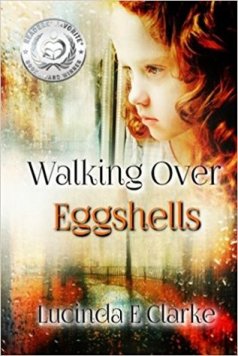 Years ago she published educational books with a traditional publisher. Her more recent works have been self-published and she puts a great deal of time and effort into marketing those books. I wondered if she would welcome an opportunity to return to trad. publishing if that were available.
Years ago she published educational books with a traditional publisher. Her more recent works have been self-published and she puts a great deal of time and effort into marketing those books. I wondered if she would welcome an opportunity to return to trad. publishing if that were available.
“This is a question I’ve often asked myself, after I’ve put in hours of work and the sales are dismal. I’ve dug out my old contracts and wondered if the same commissioning editors are still with Heinemann or McMillan but then I remember how much control they might take, deciding on covers I might not like, insisting I change bits in the story I’m fond of, owning copyright for maybe years, taking at least 18 months to bring out the next book, and finally, giving me a fraction of the royalties I can get as an Indie.
I’m really lucky in that I was trad published, and earned my living by writing so I don’t have to prove anything to those who wrinkle their noses at me and sneer (and yes it has happened) that I’m not a ‘proper’ author. Oh, and remember I’m an aging dinosaur now, I can’t wait that long, I’m determined to get as many books written as possible to decorate the shelf in my room in the old folks’ home.”
She experienced the highs and lows of African politics at first hand and that provides the background to Amie’s adventures. I asked if she was prepared to share her view of African culture and the effects of colonisation.
“I rarely comment on religion or politics on social media, but for you Frank I will make an exception. When I first went out to Africa I took with me the well-known views that colonialism was wrong, a bad thing and that European countries had taken unfair advantage of its peoples. I got a shock when I learned that when Jan van Riebeck went out to set up a refreshment station at the Cape of Good Hope in 1664 no Africans had seen a wheel before. The colonists brought with them skills, medicine, the written word, the knowledge of what minerals were and how they could be used, improved agriculture . The invaders saved many lives and built infrastructures thousands of Africans enjoy today. Yes, they did rape the land of precious minerals, and some workers were treated badly, while others refused to work at all. That led to opportunities for many Indians and Malays to immigrate to South Africa to work and many of them have prospered in later generations. Most of the luxury cars you see driven around these days and mansions are owned by Indians. There is rampant corruption in Africa, part of the mindset that those in charge, chiefs, ministers and leaders are there to be obeyed and deserve the best. Things are changing, but slowly.
I was amazed by the number of Africans who told me they were happier under a white government, life was safer, the rules were clearer and the corruption was less.
I had a further shock returning to Europe to discover just how much corruption is rampant in Europe, only people here are much better at covering it up.
Politics aside I’ll never forget one day in the car on location when I popped an Andrea Bocelli CD on and my African cameraman burst into tears. He had never heard opera before and he was totally entranced. He made me play it over and over and over again. It was a bit of the West he appreciated.”
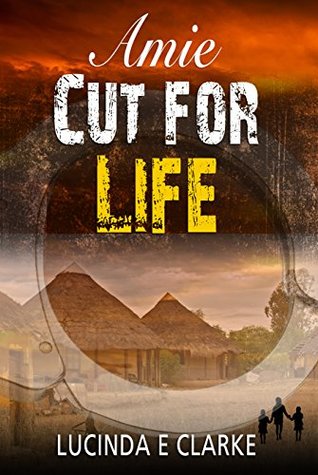 The latest volume of Amie’s adventures deals with the highly controversial subject of FGM. Though illegal in much of the developed world, it is a centuries old practice in some African cultures. I decide to play devil’s advocate and put it to her that, if I was to condemn male circumcision, as practiced as part of a religious ceremony, I would probably be branded anti-semitic. How is her condemnation of FGM different?
The latest volume of Amie’s adventures deals with the highly controversial subject of FGM. Though illegal in much of the developed world, it is a centuries old practice in some African cultures. I decide to play devil’s advocate and put it to her that, if I was to condemn male circumcision, as practiced as part of a religious ceremony, I would probably be branded anti-semitic. How is her condemnation of FGM different?
“The practice of FGM can cause bleeding (haemorrhage), chronic pain, scar tissue and keloid, recurrent infections (eg tetanus), swelling of the genital tissue, fever, wound healing problems, difficulty urinating and passing menstrual flow, the development of cysts, an inability to get pregnant, sexual problems, complications during childbirth, infant mortality, shock and even death. Some women are literally sewn up and the skin has to be broken open for intercourse to take place, then again for childbirth, after which she is sewn up again. The pain must be indescribable. This does not even touch the damage to the dignity and self-esteem of the victim. It does not have one single health benefit.
While it might be a tradition, behind it lies domination over women as men have reasoned that if women enjoy sex they may be unfaithful. There is no thought of keeping a wife happy in every day life so she wouldn’t want to stray, it is done by force. Male circumcision on the other hand has fewer dangers and men can lead perfectly normal lives after the procedure. Many of the health benefits are now being questioned. Unlike male circumcision not one religious text mentions FGM or propounds it, but there is an upsurge in certain sects to preserve it. We need to stop it now, by persuasion in the countries where it is practiced.”
As a follow up, I ask at what point does she believe the process of ‘civilisation’ ceases to be a good thing and spill over into the suppression of traditional cultures, if at all.
“Most of what is produced these days lends itself to making life more comfortable eg dentistry, medicine in general, transport, education, safe housing etc. Where the ‘civilisation’ breaks down is when one culture totally dominates another and forces it into obeying their rules. While we may see the benefits, the traditionalists must be persuaded it is also for their benefit. If they refuse then I feel they should have the final decision. In Africa democracy is seen as “one man, one vote, once,” it’s a foreign concept in a paternalist society. After that, the ruling party stays in power by whatever means possible, even if it requires killing off the opposition candidates and beating up voters. If you’ve lived in a ‘civilised’ country all your life it’s really hard to grasp the brutality and acceptance and fatalism of a different culture. It’s a totally different mindset.”
I turn to the subject of propaganda and ask if she would describe the programme segments she produced for African national and regional governments as ‘fake news’. How well, I wonder, does she trust the output from traditional media like CNN, the BBC, The New York Times and Washington Post. Does she think the press is generally a force for good or has it been universally discredited by the prevalence of political bias?
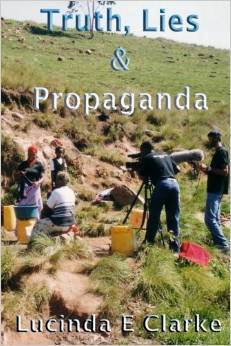 “Goodness yes! Fake they were! On a Monday I would be scribbling for the National Heart Foundation telling people to only eat red meat, and how potatoes were bad for you. On Friday I was extolling the virtues and vitamins in potatoes for a major crisp company. In my defence I was being paid to produce what the client wanted. And NO, I don’t trust ANY of the news channels, they tell people what they want them to hear, believe and what opinions people should have.
“Goodness yes! Fake they were! On a Monday I would be scribbling for the National Heart Foundation telling people to only eat red meat, and how potatoes were bad for you. On Friday I was extolling the virtues and vitamins in potatoes for a major crisp company. In my defence I was being paid to produce what the client wanted. And NO, I don’t trust ANY of the news channels, they tell people what they want them to hear, believe and what opinions people should have.
Another shock, it was in Libya, was to listen to how radio news broadcasters all over the world reported on what was happening in Benghazi when we were living there. Some said it was a bloodbath, others it was an out and out war etc. The only one to tell the truth was Radio Vatican City! All that had happened was they had closed the border between Libya and Egypt and herded out the Egyptian workers in trucks. Most of the world media reported it as a full-scale war.
It’s a known fact that if you have trouble within your own borders, or an embarrassing situation, you look around for something to divert attention away from it. If you don’t believe me watch the movie “Wag the Dog,” it’s brilliant. The levels of coercion and corruption worldwide are beyond belief. Newspapers won’t publish bad things about companies that pay for their advertising and governments manipulate the media constantly. I wish people were more aware of this. Propaganda is insidious and the people can be so easily persuaded. One reader told me I didn’t know what I was talking about regarding Africa despite my 34 years there, in rural huts, village celebrations, tribal courts, hospitals, private houses, schools, clinics, shops cities and deep rural. She’d never been there but she’d seen it on the television so she knew I was quite wrong about it all. Believe me, propaganda is powerful.”
I thank her for her honest and illuminating answers to my questions. I hope you find her as inspiring as I did and that you will pop over to her website and take a closer look at her books. She is also on social media and Goodreads.
Amazon author page http://www.amazon.co.uk/Lucinda-E-Clarke/e/B00FDWB914/
google plus https://plus.google.com/u/0/111022058001016430368/posts
Pinterest https://es.pinterest.com/lucindaeclarkea/
LINKDIN https://www.linkedin.com/in/lucinda-clarke-
twitter name @LucindaEClarke https://twitter.com/LucindaEClarke
Facebook https://www.facebook.com/lucindaeclarke.author
Newsletter sign up http://eepurl.com/c-GqWr

Great piece loved this and I’m a big fan of Lucinda
LikeLiked by 4 people
I quite like her too Patrick, well on some days!! 🙂 🙂 🙂
LikeLiked by 4 people
Frank that you sooooo much for posing some really interesting and insightful questions. I have probably said more on this blog than any other 🙂 You got right to the heart of things.
LikeLiked by 3 people
That is my aim with these interviews. I wanted to make them a bit different to the many others out there.
LikeLiked by 2 people
A fan of Lucinda’s work here, as well. Thanks for featuring her, Frank.
LikeLiked by 4 people
You said so much, Lucinda, you left me gasping. All I know is helping people in Africa is incredibly difficult. The only time I was able to was when our daughter’s maid was robbed and forced to watch her hut burned, I sent money to replace what she’d lost TO my daughter who I knew would make sure she actually got it. (No, she wasn’t living in luxury. She was there with her American husband who worked for the US government and it was policy to provide employment not charity.)
LikeLiked by 3 people
When I lived in South Africa we employed a maid. We certainly didn’t need to – Mrs P was home all day – but everyone did and, as you say Sarah it was a way of ensuring the locals benefited in some small way from our presence. She was also handy for child minding when we went out in the evenings.
LikeLiked by 2 people
The wisest type of help Sarah, if the people themselves have the buy-in factor it works much better.
LikeLiked by 3 people
You’ve had such incredible experiences, Lucinda. And such heartbreaking ones. I can’t imagine how difficult some of those were for you. I think it’s wonderful that you use your writing to shine the light on these issues.
LikeLiked by 3 people
What a wealth of knowledge that Lucinda has and Shares in her books.
LikeLiked by 2 people
Riveting reading, Lucinda! A really excellent article, and given I spent twenty years in Africa too, I know you’re right!
LikeLiked by 2 people
Fascinating interview Frank. Lucinda sure has a wealth of stories and experiences to share.
LikeLiked by 2 people